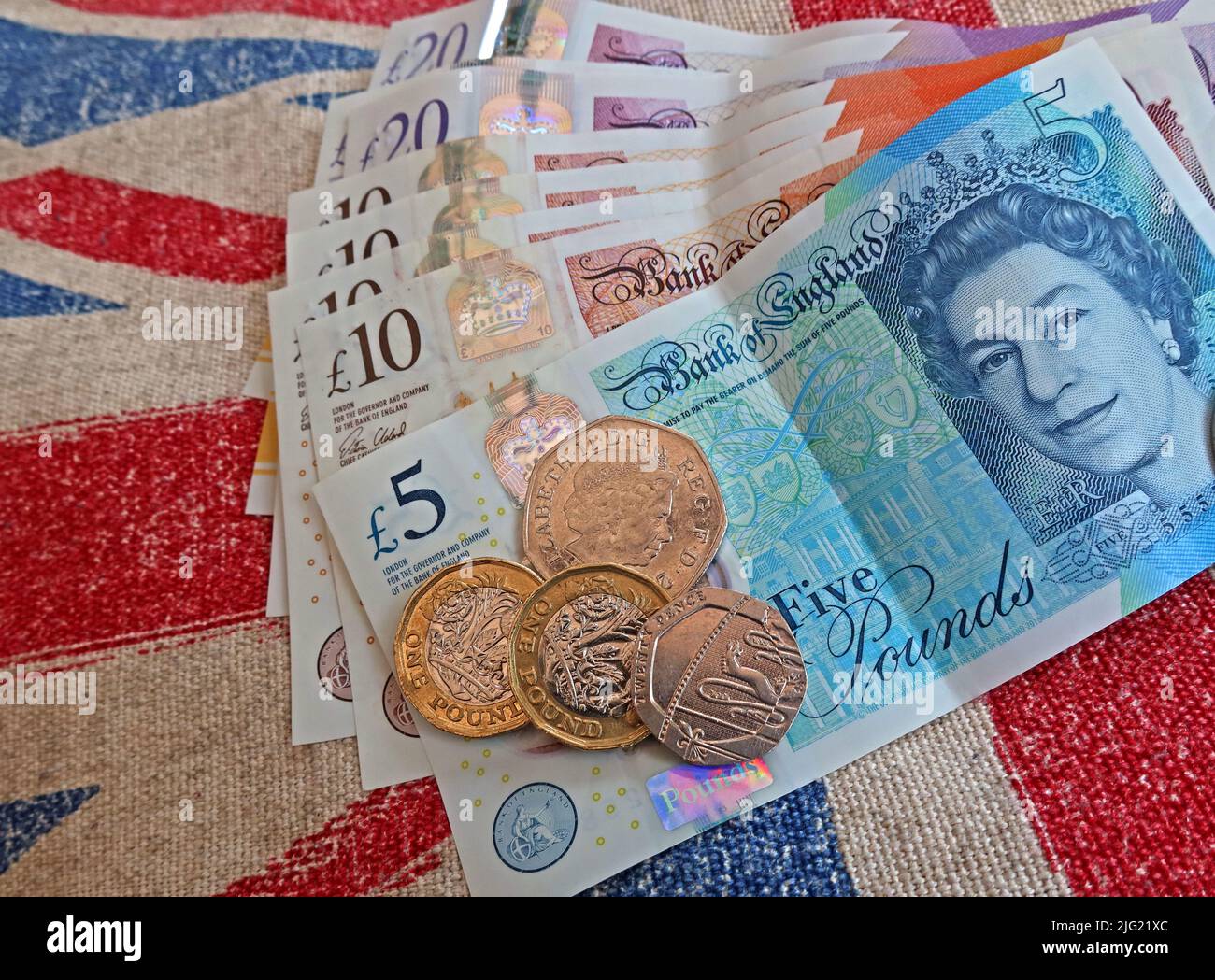Sterling pound notes, bank of England and pound coins on a union jack flag - cost of living crisis, in UK / GB

Image details
Contributor:
Tony Smith / Alamy Stock PhotoImage ID:
2JG21XCFile size:
44.4 MB (2.4 MB Compressed download)Releases:
Model - no | Property - noDo I need a release?Dimensions:
4584 x 3384 px | 38.8 x 28.7 cm | 15.3 x 11.3 inches | 300dpiDate taken:
6 July 2022Location:
Threadneedle St, London, England, UK, EC2R 8AHMore information:
The UK cost of living crisis is a period starting in 2021 in which prices for essential goods in the United Kingdom began increasing faster than household income, resulting in a fall in real income. This is caused in part by a rise in inflation in the UK. While all in the UK are affected by rising prices, the impact has been felt most by those with low income. The UK government has responded in various ways, such as by making provision for a £650 grant for each of the UK's lower income households. Both global and local factors have contributed to the UK's cost of living crisis. According to Bank of England governor Andrew Bailey, about 80% of the causes driving the cost of living crisis are global. These include the ongoing COVID-19 pandemic, an ongoing chip shortage, an energy crisis in 2021–2022, a supply chain crisis in 2021–2022 and Russia's invasion of Ukraine in 2022. The UK was reported to be among the worst affected among the world's advanced economies. In 2021, the UK's inflation was less than that of the US, but high US inflation was not generally experienced as a cost of living crisis due to the stimulus cheques that had been distributed to American households. Though in 2022 the cost of living crisis was also reported as being a global phenomenon, having impacts that include those living in the US, across Europe, and as risking an "apocalyptic" impact for those in the developing world. Causes unique to the UK include labour shortages related to foreign workers leaving due to Brexit, and additional taxes on households. Factors that have worsened the crisis since 1 April 2022 include Ofgem increasing the household energy price cap by 54%, an increase in National Insurance, and a rise in Council Tax. Household income, whether from wages or benefits, has not generally kept pace with rising prices. In April 2022, UK real wages fell by 4.5%, the sharpest fall since records began back in 2001 More at https://en.wikipedia.org/wiki/UK_cost_of_living_crisis